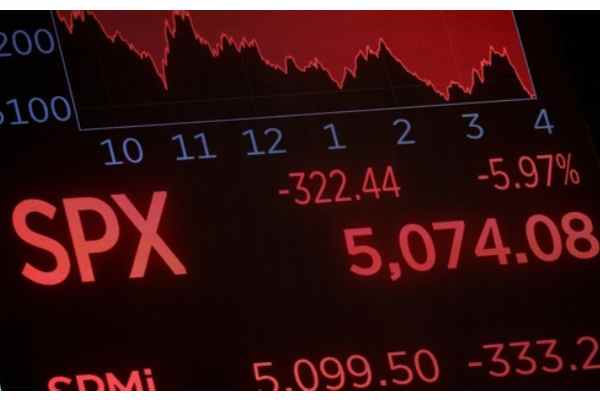Stock markets worldwide have experienced a severe crash following US President Donald Trump’s announcement of sweeping tariffs on global trading partners. Experts are calling it “Black Monday” as panic swept through markets from Mumbai to Tokyo.
In India, the Sensex plummeted over 2,200 points while the Nifty fell more than 3% below the 22,200 mark. Indian investors lost over ₹13 lakh crore in a single day just on the Bombay Stock Exchange.
Asian markets were hit particularly hard. Tokyo’s Nikkei dropped over 8%, Taiwan’s TX fell nearly 10%, and both triggered circuit breakers, automatic trading halts designed to prevent panic selling. Hong Kong’s Hang Seng suffered its steepest decline since 1997, plunging 13% and requiring intervention from China’s sovereign wealth fund.
Trump’s tariffs have affected Asian manufacturing economies, with China facing 54% duties, Cambodia 49%, Vietnam 46%, Thailand 36%, and India 26%. These high rates have intensified pressure on export-dependent Asian economies.
Goldman Sachs estimates a 45% chance of recession, while JP Morgan raised its forecast to 60%, directly blaming Trump’s tariff policies. Even Trump supporter Bill Ackman has called for a 90-day pause, warning of an “economic nuclear war” if the tariffs proceed as planned.
Since Trump’s tariff announcement, US stocks have lost over $6 trillion in market value, with a record $11 trillion loss since his inauguration. European markets have also declined sharply, with Germany’s DAX, France’s CAC, and UK’s FTSE 100 all falling over 5%.
Despite widespread market panic, the Trump administration remains committed to its tariff strategy, dismissing reports of a potential 90-day pause as “fake news.”
-Sanyogita

































